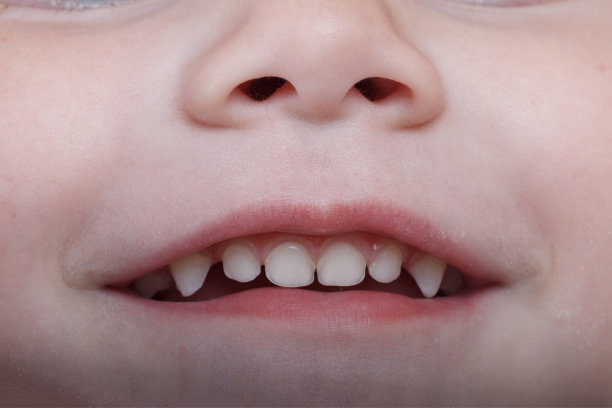Summary: The journey of tooth extraction is not just about the physical act; it encompasses a range of emotions and experiences that many find daunting. This article explores four critical aspects: understanding the emotional turmoil associated with the procedure, coping strategies for managing anxiety and fear, essential post-extraction care to ensure a healthy recovery, and how to maintain oral hygiene and protect your smile in the long run. By reviewing these elements, readers will be equipped with knowledge and reassurance to navigate the emotional rollercoaster of tooth extraction and ensure their oral health stays intact through proper care.
1. Understanding the Emotional Turmoil of Tooth Extraction

For many, the thought of having a tooth extracted can evoke feelings of anxiety and fear. This is often due to the anticipation of pain, discomfort, or invasive procedures that lie ahead. The mind can conjure scenarios that amplify these fears, often leading to significant emotional distress prior to the appointment.
Children and adults alike may experience guilt or embarrassment about their oral health leading to the need for the extraction. These feelings can inhibit one’s willingness to seek necessary dental care promptly. Understanding that these emotions are common can be the first step in managing them.
Acknowledging these emotional responses is crucial. Patients should remember that dental professionals are trained to manage not only the physical aspects of the procedure but also the emotional support of their patients. Open communication with the dentist can help alleviate fears and provide reassurance.
2. Coping Strategies for Managing Anxiety and Fear
Once the emotional aspect of a tooth extraction is understood, the next step is coping with anxiety and fear. One effective method is to educate oneself about the procedure. Knowledge can demystify the process and lessen dread, as patients will be more aware of what to expect before, during, and after the extraction.
Practicing relaxation techniques, such as deep breathing or visualization, can also be beneficial. These methods can help to calm the mind and prepare the body for the procedure. Some patients find it helpful to bring along a trusted friend or family member for emotional support during the appointment.
Another effective strategy is to speak with the dental care team about sedation options. Many dental offices offer sedation dentistry, which can significantly reduce stress and ensure a more comfortable experience during tooth extraction.
3. Essential Post-Extraction Care for a Healthy Recovery
After a tooth has been extracted, proper care is paramount to ensure a healthy recovery and minimize complications. Patients are usually advised to rest for the first 24 hours post-procedure, avoiding strenuous activities that could hinder healing.
Managing pain and swelling is an expected part of recovery. Ice packs can be applied to the outside of the cheek to alleviate swelling, while the dentist may recommend over-the-counter pain relief medications or prescribe stronger painkillers if necessary.
Maintaining a soft food diet during the initial days after extraction is crucial. Foods like yogurt, mashed potatoes, and smoothies are gentle on the healing gums and help prevent discomfort. Staying hydrated is equally important, but patients should avoid using straws, as the suction can dislodge blood clots critical to the healing process.
4. Maintaining Oral Hygiene for a Healthy Smile
After recovery, keeping the mouth clean is vital for maintaining oral hygiene and preventing future dental issues. Gentle brushing can resume after a couple of days, but patients should avoid the extraction site to allow for healing. A soft-bristle toothbrush can aid in cleaning without causing irritation.
Incorporating mouth rinses can also assist in keeping the mouth clean. However, patients should wait a few days before using any mouthwash containing alcohol, opting instead for a gentle saltwater rinse or a prescribed antiseptic rinse.
Regular follow-ups with the dentist are essential for monitoring recovery and addressing any concerns that may arise. Building a routine that includes proper brushing, flossing, and check-ups can help ensure that the smile remains healthy and bright.
Summary:
The emotional journey of tooth extraction involves navigating feelings of fear and anxiety, but with effective coping strategies and proper care, this experience can be managed successfully. From pre-extraction education to post-procedure care, each step is critical in maintaining a healthy smile afterward.
This article is compiled by Vickong Dental and the content is for reference only.
Vickong Dental
Vickong Dental is a large medical group established in Hong Kong in 2008 by professors from well-known medical universities in Guangdong and Hong Kong, as well as medical doctors from key national '985' universities (including Master's supervisors and senior professors). The chain of branches brings together expert dentists with PhDs and Master's degrees from Hong Kong and Mainland China, committed to providing high-quality dental treatment.
"Vickong Dental Practices the University Motto of 'Healing and Serving Society,' with a Stable Operation for Sixteen Years. It Has Been honored with Hong Kong Enterprise Leaders's Choice,' and is a Global Trusted Implant Center for the Nobel Implant System. Recommended by Hong Kong Metro Broadcast and Guangdong Television, it Serves Customers from Over Thirty Countries and Regions, Gaining the Trust and Favor of Citizens from the Guangdong-Hong Kong-Macau Greater Bay Area and Surrounding Cities.

Thousands of customers' unanimous praise
The most recognized and highly recommended dental service by customers in the Guangdong-Hong Kong-Macau Greater Bay Area
We Ensure You Receive Detailed Care and Attention Here
Hong Kong standards, Shenzhen prices, Your Trusted English-speaking dentists

Vickong Dental Medical-Grade Instrument Disinfection Process
Vickong Dental Medical-Grade Instrument Disinfection Process

Vickong Dental Chain: A Warm and Comfortable Environment for Treatment






Appointment Hours

Q&A
Why choose Vickong Dental?
Vickong Dental practices the university motto 「Medicine to Benefit Society」, with each branch bringing together highly qualified dentists with doctoral and master’s degrees from Hong Kong and the Mainland, and has maintained seventeen years of steady operation。Recipient of 「2024 Hong Kong Enterprise Leaders Brand」, 「2025 Hong Kong Enterprise Leaders Brand」, a Nobel Biocare Global Trusted Implant Center, and a brand recommended by Metro Radio Hong Kong and Guangdong TV。
To date, we have served customers from more than thirty countries and regions,earning exceptionally high word-of-mouth recognition and trusted recommendations from residents across the Guangdong-Hong Kong-Macao Greater Bay Area and surrounding cities
We have eight major branches in Zhuhai、Shenzhen,and a consultation and service assurance center in Hong Kong,so you can book a free consultation at any time for any questions,which is very reassuring.
If I do not accept the quotation after the CT scan, will I be charged??
No! As long as the actual treatment has not started, you will not be charged any fees.
Will there be any additional charges during the treatment process?
No, there won’t be any additional charges. Before treatment begins, we will clearly explain the treatment plan and its corresponding fees. Only after the patient agrees and signs the consent form will we proceed with the dental service.
Can I pay in Hong Kong dollars?
Yes. Vickong Dental accepts payment in Hong Kong dollars. The amount will be converted based on the exchange rate of the day, and the applicable rate will be clearly communicated to you in advance.
Can I reschedule my appointment at any time?
Yes. Please contact us via **WeChat** or **WhatsApp** as early as possible, providing your original appointment time and details, along with your preferred new date and time slot for rescheduling.













